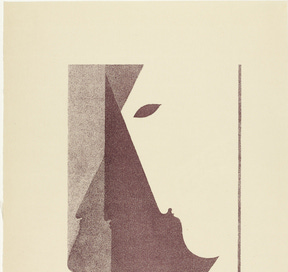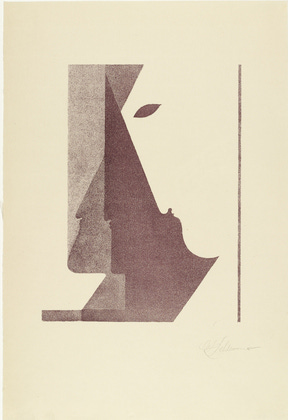From the same desert, in the same night, always my weary eyes wake to the star of silver, always, without troubling the Kings of life, the three mages, heart, soul, and mind. When shall we go beyond the shores and mountains, to hail the birth of fresh toil; fresh wisdom, the rout of tyrants and demons, the end of superstition, to adore—as newcomers—Christmas on earth! (Arthur Rimbaud, A Season in Hell, “Morning,” trans. A.S. Kline.)
In the days immediately following Thanksgiving, when Autumn has finally been defeated and a few handfuls of snow disperse through the air, I become filled with a slowly rising happiness that also carries a drop of sadness.
A Christmas tree in the window of a house: it is simultaneously forlorn and glad. Presiding like the Cone Nebula, the tree has been taken away from its woods (or its plot). It dies basking in diffuse happiness, breathing the magical image of an alpine paradise into the home in a weird dementia of bygone Saturnalian festivity.
This is the time of year when it feels most urgent to read poetry. Not for any purpose, of course, as the word urgency might suggest. The urgency of poetry is the urgency of the sleepwalker. It is absolutely useless.
Here is a stanza from a book I return to every December, forgetting its contours and depth almost immediately after reading it but always remembering something of its coloring, its aura, so to speak:
The sun was still hot; nonetheless, now it barely illuminated the earth; like a torch placed before gigantic vaults casts no more than a weak glimmer. So the sun, earthly torch, is snuffed out while a final weak glimmer escapes its fiery body, nonetheless allowing us to see the trees' green leaves, little flowers that wilt, and gigantic summits of pines, poplars and age-old oaks. The refreshing wind, meaning a cool breeze, stirs the leaves of trees with a rustling nearly identical to the noise from silver streams which flow at my feet. The ferns bend their green foreheads to the wind. I slept, but not before drinking water from the stream.
(Arthur Rimbaud, Rimbaud Complete: Poetry and Prose, Trans. Wyatt Mason, 2002. 159.)No matter how often I read these prose poems,1 I cannot commit them to memory. But this is how it is with the very best poetry. It lives and dies in a flash, and this flash is what illuminates the time and place in which it is read.
Footnoted coda
★2
From Illuminations.
The following is a short excerpt from my essay “On Lists,”* with its relevant footnote in block quotes. A longer excerpt from this essay can be found here.
William Blake often uses lists in his poetry—there is something destituent and revelatory about such poetically heated and grammatically melted-down words (cf. Rimbaud’s letters).”
In Wyatt Mason’s introduction to the Modern Library edition of Rimbaud’s letters (I Promise to Be Good: The Letters of Arthur Rimbaud, 2003. xxxiv.), he quotes Rimbaud: “—It’s been two months since I wrote and I still haven’t received the Arabic books I requested. Everything must be sent via the Messageries Maritimes. Be aware.” Mason goes on, via the list form: “And not just Arabic books: Topography, Geodesy, Trigonometry, Mineralogy, Hydrography, Meteorology, Industrial Chemistry, Traveler’s Manual, Instructions for Travelers’ Assistants, Cartwright’s Manual, Tanner’s Manual, The Compleat Locksmith, Operating Mines, Glassmaker’s Manual, Brickmaker’s Manual, Earthenware Manual, Metalforging Manual, Candlemaking Manual, Guide to Gunmaking—in short, a library on how to build an entire civilization, piece by piece.”
*Originally published by BarBar in Submit, issue 2.






